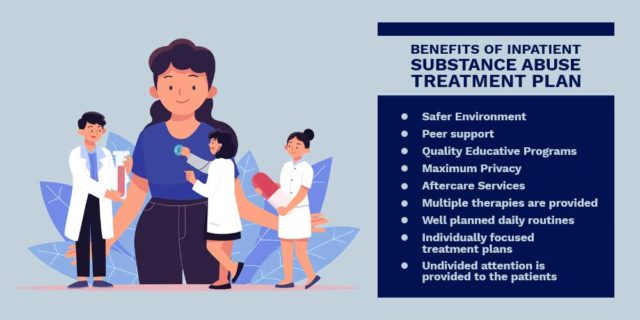Rumored Buzz on Narconon Africa
Rumored Buzz on Narconon Africa
Blog Article
The 30-Second Trick For Narconon Africa
Table of ContentsThe Single Strategy To Use For Narconon AfricaUnknown Facts About Narconon AfricaIndicators on Narconon Africa You Need To KnowFacts About Narconon Africa UncoveredThe Buzz on Narconon AfricaSee This Report on Narconon AfricaEverything about Narconon Africa
In a collection of documents with Manudeep Bhuller and Katrine V. Lken, we get rid of these data challenges and the nonrandomness of jail time, providing brand-new insights into how imprisonment affects regression, employment, kids, and criminal networks - Effective long-term recovery from drug abuse. Number 1 Our job researches the effects of incarceration in Norway, a setting with 2 vital benefitsWe can better link this info to various other relative, consisting of children and brother or sisters. We have info on co-offending that allows us to map out criminal networks for observed criminal offenses. Second, we can utilize the arbitrary assignment of criminal instances to courts who vary in their propensities to send accuseds to prison.
Some judges send out offenders to prison at a high rate, while others are extra forgiving. We determine a judge's stringency as the ordinary imprisonment price for all various other situations a judge deals with, after controlling for court and year set impacts, which is the level of random job. This quasi-random job of court stringency can be utilized as a tool for imprisonment, as it strongly predicts the court's decision in the present situation, however is uncorrelated with other instance features both by design and empirically.
The smart Trick of Narconon Africa That Nobody is Talking About
Characteristics of detainees, including demographics and criminal activity classifications, are extensively comparable in Norway and various other nations, consisting of the United States, with the exemptions that the US homicide price is much higher, and race plays a larger role there. What stands out as various, particularly compared with the USA, is the prison system.
Number 2In Norway, the average time spent in jail is a little over 6 months, which is similar to most other Western European countries. This contrasts with typical United States prison time of almost three years, which is in huge part the factor the USA is an outlier in its imprisonment rate compared to the remainder of the globe [Figure 1]
The Facts About Narconon Africa Revealed
This gives much even more separation in between minor and hard criminals than exists in the USA. There is no overcrowding in Norwegian jails and better individual safety, with each prisoner being designated to their own cell and a greater inmate-to-staff proportion than in the United States (https://www.tripadvisor.co.za/Profile/narcononza12). Jails in Norway likewise provide well-funded education and learning, medication treatment, psychological health, and work training programs
Our study on the effects of imprisonment on the transgressor, making use of the arbitrary task of courts as an instrument, Homepage yields 3 vital findings. First, jail time inhibits even more criminal habits. We find that imprisonment decreases the likelihood that an individual will certainly reoffend within 5 years by 27 percent factors and reduces the corresponding variety of criminal fees per individual by 10 fees.
The Narconon Africa PDFs
We find sizable reductions in reoffending chances and collective billed criminal activities even after offenders are launched from prison. Our 2nd result is that predisposition because of option on unobservable private characteristics, if disregarded, leads to the incorrect verdict that time invested behind bars is criminogenic. If we simply compare criminal offenders sentenced versus those not sent to prison, we discover favorable associations between incarceration and subsequent crime.
This stands in contrast to our analysis based upon the arbitrary task of judges, which locates an opposite-signed result. Third, the reduction in criminal activity is driven by individuals who were not working prior to imprisonment. Amongst these individuals, imprisonment increases involvement in programs routed at enhancing employability and lowering regression, and this inevitably increases work and revenues while inhibiting criminal habits.

Jail time causes a 34 portion point boost in engagement in task training programs for the previously nonemployed, and within five years their work price boosts by 40 portion points. At the exact same time, the possibility of reoffending within 5 years is cut by 46 percent points, and there is a decline of 22 in the ordinary variety of criminal charges.
Narconon Africa Fundamentals Explained

A possible description for the distinction is that Norway's jail system varies substantially, both in regards to prison-term length and jail problems, from the United States prison system. While understanding the impacts of incarceration on the wrongdoer is a vital initial step, recording spillover impacts is likewise essential for assessing criminal justice plan and making effective jail systems.
How Narconon Africa can Save You Time, Stress, and Money.

Common least squares approximates expose that kids of incarcerated dads are 1 percentage factor most likely to be billed with a criminal offense, relative to a mean of 13 percent, and reveal no effect on college qualities. Utilizing our court stringency tool, we locate no analytical evidence that a daddy's imprisonment influences a kid's own criminal activity or college qualities, however we are unable to rule out modest-sized results.
Examine This Report on Narconon Africa
We specify criminal groups based on network web links to previous criminal cases. Our evaluation returns three primary findings. First, when a criminal network participant is incarcerated, their peers' likelihood of being billed with a future crime reduces by 51 percent factors over the following 4 years. Having an older sibling jailed reduces the likelihood his more youthful bro will be billed with a crime by 32 percentage points over the next four years.
Report this page